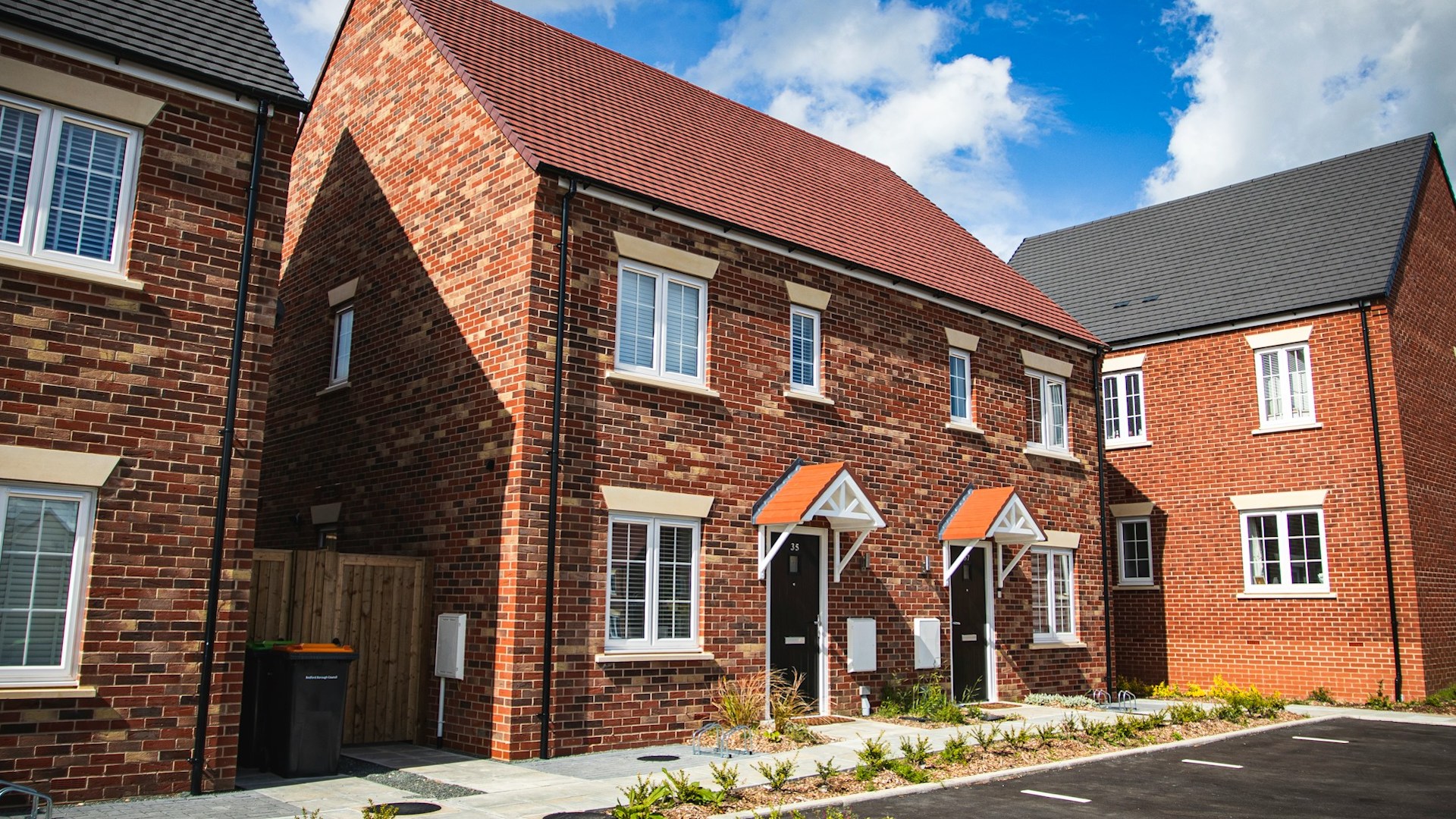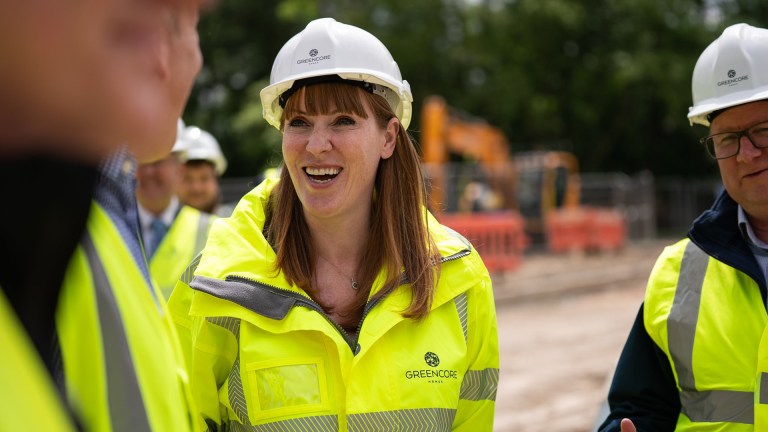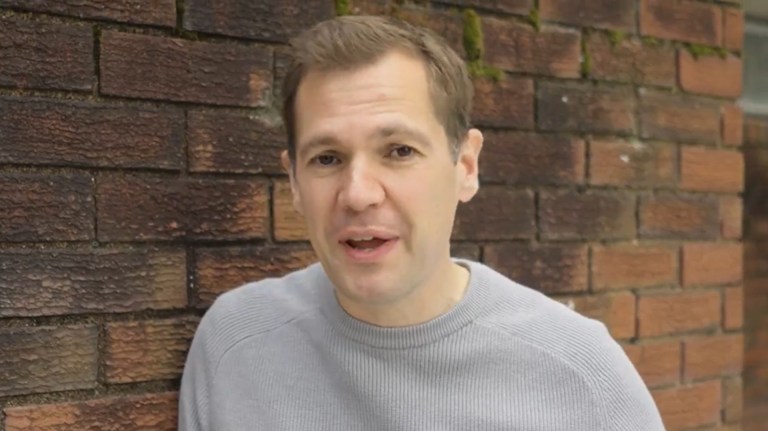You usually must have the right to reside in the UK too, meaning British citizens, EU nationals with settled or pre-settled status and people with indefinite leave to remain are eligible. Refugees usually qualify too, though people still stuck in the asylum process – who have what’s referred to as no recourse to public funds – can’t qualify for council housing. Even if you’re in one of the groups which are eligible, you might still need to provide some extra evidence to back up your application.
However, even if you qualify for a council house, there’s no guarantee that you’ll be offered one quickly – thanks in part to the severe dearth of housing stock across the country.
Get the latest news and insight into how the Big Issue magazine is made by signing up for the Inside Big Issue newsletter
Young people are among the hardest hit by the high cost of living, pushing some into homelessness. But around a third of homeless young people in England are turned away “without even being assessed, let alone supported,” according to Balbir Kaur Chatrik, director of policy for charity Centrepoint.
“For thousands of homeless young people across the country, the prospect of moving into social housing feels so far away from their reality,” she said.
“This isn’t entirely councils’ fault. Chronic underfunding from central government – we think there is a youth homelessness funding shortfall of around £330 million a year – has left many of them forced into impossible decisions about who to prioritise, sometimes at the expense of their statutory obligations.
Advertising helps fund Big Issue’s mission to end poverty
“While access to social homes is a vital step towards ending the housing crisis, it is important to understand that not all vulnerable young people are ready to live independently. We also need to see councils provided with both a long-term strategy and appropriate resources to provide tailored supported accommodation for those who need it.”
The organisation is “hopeful” that the government will come good on its commitment to build more social homes, Chatrik added, “but it is essential these meet the current needs. Just to address current demand, England needs to build 90,000 a year across this new parliament, including 40,000 one-bedroom properties for single applicant households. These make up around half of all the households stuck waiting for somewhere to live.
“As things stand, too many young people, especially those with experience of homelessness, are seeing their lives held back by a lack of truly affordable housing.”
How to get a council house fast
Despite the real hardship faced by thousands in the UK, there isn’t a shortcut to the top of the council house waiting list. The allocation process mainly operates using different levels of priority groups, which the council sets. Some people might receive housing more quickly if their circumstances are seen as particularly urgent; that often means being homeless, at risk of domestic violence or living in a particularly overcrowded home. But for most people, getting a council house is a waiting game.
There aren’t many factors within your control which could improve your chances, but making sure that your application is as accurate and comprehensive as possible will help. You should also keep your local council updated on any changes in your situation – whether it’s the birth of a child or a sudden change in income – as this might increase your priority level.
If you have rent arrears from a previous tenancy, these can slow down or even prevent your application from moving forward. Local councils sometimes consider arrears when determining eligibility – especially if you owe rent for a previous council home – so it’s important to resolve any outstanding issues related to unpaid rent. This is sometimes resolved if you make an agreement to pay off the debt.
Advertising helps fund Big Issue’s mission to end poverty
Your location also plays a role in how quickly you could land a home. Councils in more rural or less populated areas sometimes have shorter waiting lists compared to larger cities like London or Manchester. You could consider applying to councils in neighbouring areas, although this might not be allowed depending on the local authority’s housing policies.
Who gets highest priority for council housing?
Priority for council housing is largely determined by your current living situation and the level of need you’re seen as having. People in the highest priority categories are generally those who are homeless or at risk of becoming homeless, families with young children living in overcrowded or unsuitable conditions or people with medical needs that aren’t being met by their current housing.
Homelessness is often the most pressing reason for being boosted up the waiting list, and this includes both people who are currently without a home and people who are at risk of losing their house or flat in the immediate future. People fleeing domestic violence, for example, will typically receive high priority.
Priority is often also given in cases where someone in the household has a severe health condition or disability that makes their current housing unsuitable. Maybe your current home has stairs and you or someone you live with can’t navigate them due to disability, or you need to use a wheelchair and the doorframes and hallways aren’t wide enough to accommodate it.
While these factors can help speed up the process, the reality is that there are no quick tricks to getting a council house or council flat fast. The best course of action is to provide as much detail about your circumstances as possible and stay in the loop about your application’s status.
How to get a council house quickly when pregnant
Being pregnant can increase your priority for council housing, particularly if your current accommodation won’t suit a growing family.
Advertising helps fund Big Issue’s mission to end poverty
That said, being pregnant in itself doesn’t automatically guarantee that you’ll get a council house quickly. The council will still take a broader view of your circumstances, such as your income, existing housing conditions and any other children you have, when making decisions. You should tell your local authority as soon as possible if you’re pregnant and on the waiting list in case it speeds up the process.
How long does it take to get a council house?
The waiting time for a council house can vary significantly depending on where you live and your circumstances.
In areas with high demand, like London or other major cities, it can take several years to be offered a council house or flat. In more sparsely populated areas, the waiting time may be shorter – but, again, there are no guarantees. Some people might only have to wait a few months.
If you fall into one of the highest priority categories, your wait time could be shorter but, even then, it’s unlikely to be immediate.
Your options while you wait
Many people opt to rent privately while waiting for a council house. It’s more expensive, but it does provide a temporary solution while you wait for council housing to become available. If private rent is looking like your only option but you’re not sure you can afford it, remember you can apply for universal credit to cover your housing payments in full or in part.
It’s also worth exploring other housing options through housing associations, which operate alongside council housing but often have different application processes. Housing associations sometimes offer more affordable rents than the private sector and can be an good alternative while waiting for council housing.
Advertising helps fund Big Issue’s mission to end poverty
What happens if you refuse a council house?
If you are offered a council house and refuse it, what happens as a result will depend on your local authority’s policies. You might stay on the waiting list but be moved to a lower priority category, or you might be removed from the list altogether, which would mean you need to reapply if you change your mind later on.
It’s important to consider offers carefully before making a decision. Councils are often limited in the properties they can offer, and you might not get exactly what you’re hoping for in terms of size, location or condition. But if the offer meets your needs and you refuse it, you could face a significant delay in being offered another one.
How many times can you refuse a council house?
Most councils allow applicants to refuse an offer of a council house, but there is usually a penalty or a limit to how many times you can do so. The rules vary by council so it’s essential to check the specific policies in your area.
If you’re considering refusing an offer, think carefully about your current situation and whether it’s worth the risk of waiting longer for something more suitable. It might be the case that accepting a less-than-perfect home is a better option than waiting indefinitely for another offer.
How bidding and offers work
Most local councils use a bidding system to allocate housing. This doesn’t involve money – you ‘bid’ by expressing interest in available properties that match your needs. Properties are usually advertised on the council’s website, and you can bid on those that fit your household size and requirements.
Once you’ve placed a bid, the council will review all the applications and allocate the flat or house to the person with the highest priority. If they refuse it, the local authority will then offer it to the person with the next highest priority.
Advertising helps fund Big Issue’s mission to end poverty
It can be a long and stressful process, so it’s important to keep in touch with your council, update your application regularly and consider other housing options while you wait. And nothing will beat help or guidance tailored to your specific circumstances, so consider contacting an organisation like Citizens Advice for support.
Do you have a story to tell or opinions to share about this? Get in touch and tell us more. Big Issue exists to give homeless and marginalised people the opportunity to earn an income. To support our work buy a copy of the magazine or get the app from the App Store or Google Play.










